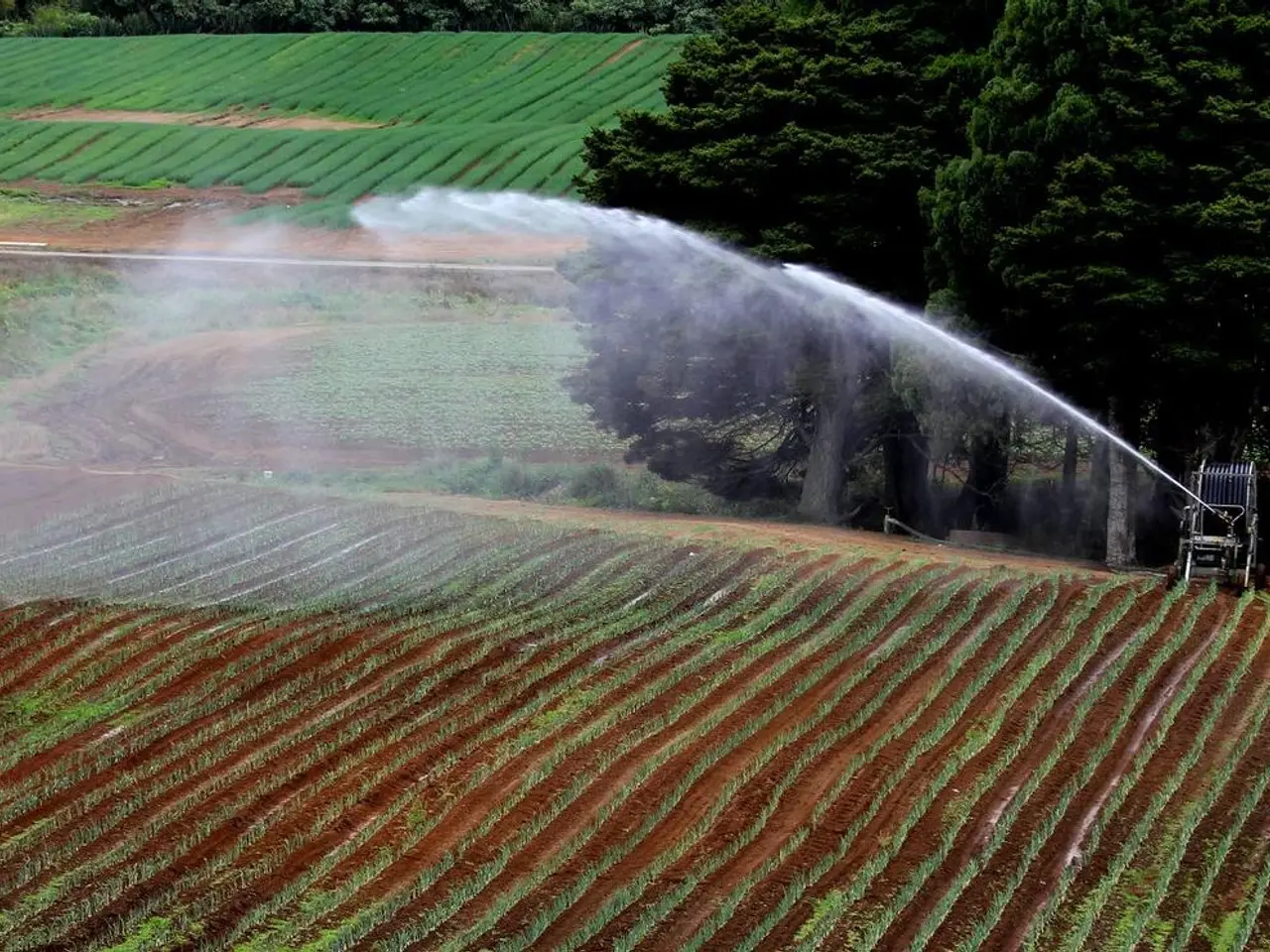Five African Innovations Leading Water Conservation Technology Advancements
In the face of a looming water crisis, five African startups are revolutionizing the agricultural and community sectors with innovative water-saving technologies. By adopting these solutions, both small-scale farmers and urban residents stand to benefit from improved crop production and reduced water usage.
Leading the charge is Soil Regen Guy, which focuses on smallholder farmers. The startup uses bio-enhanced soil treatments combined with smart irrigation systems to improve water retention in small farms, significantly reducing water use by optimizing moisture in the soil with affordable, locally sourced materials.
Afrisoul, another trailblazer, targets smallholder farmers as well. The company provides solar-powered sensors paired with a mobile app that enable precision irrigation. This technology helps farmers apply water more efficiently, conserving water through precise monitoring and control of irrigation schedules.
LiquidGold, meanwhile, is making waves in wastewater management. The startup recycles wastewater for irrigation purposes, achieving a remarkable 76% reduction in water use in a South African school project by treating and reusing greywater for watering crops and gardens.
Arumloo is another game-changer, designing water-efficient toilets and sanitation hubs aimed at communities and urban areas. Their sanitation solutions reduce water consumption significantly while improving hygiene standards, demonstrating water savings beyond agriculture.
Lastly, FOST caters to large commercial farms, using artificial intelligence and satellite data to optimize irrigation. This high-tech platform helps reduce water use by up to 40% by providing data-driven irrigation schedules and remote monitoring to maximize water efficiency on big farms.
These startups are not just addressing immediate needs but also long-term challenges, securing Africa's agricultural future and building resilience against water scarcity. The continent currently faces a severe water crisis, with as many as 230 million Africans expected to experience water scarcity by 2025.
Adopting water-saving technologies offers financial benefits as well. Every dollar invested in water and sanitation in Sub-Saharan Africa yields at least $7 in returns. These startups, through their affordability, scalability, measurable impact, technology innovation, local relevance, and community adoption, are poised to make a significant impact in tackling the water crisis in African agriculture and communities.
One such example of water-saving innovation is NORMA TECH, which uses aquaponics technology. This system, founded by Wendy-Yam Osman, integrates fish farming with soilless vegetable production in a closed-loop system that recycles water and wastewater. This system is about 90% more water-efficient than traditional agriculture and allows year-round production while reducing reliance on imported food and mitigating climate variability impacts.
These startups are a testament to the power of innovation and collaboration. By collaborating with governments, NGOs, and private investors, these startups can expand and sustain their water-saving technologies across the continent, ensuring a sustainable future for Africa's agricultural sector and communities.
- Venture capital firms can support innovations like NORMA TECH, a startup that employs aquaponics technology to create a water-efficient system for fish farming and vegetable production, contributing significantly to the technology sector and promoting water conservation in agriculture.
- Outside the agricultural sector, sports facilities can also adopt water-saving technologies for efficient irrigation, such as those provided by LiquidGold, a startup that recycles wastewater for irrigation purposes, thereby reducing water use and aligning with the sustainable lifestyle movement.
- Science and finance can intersect through investments in startups that prioritize water efficiency, like FOST, which uses artificial intelligence and satellite data to optimize irrigation in large commercial farms, demonstrating the potential impact of technology in the finance industry on addressing the water crisis in the global sports community and beyond.




